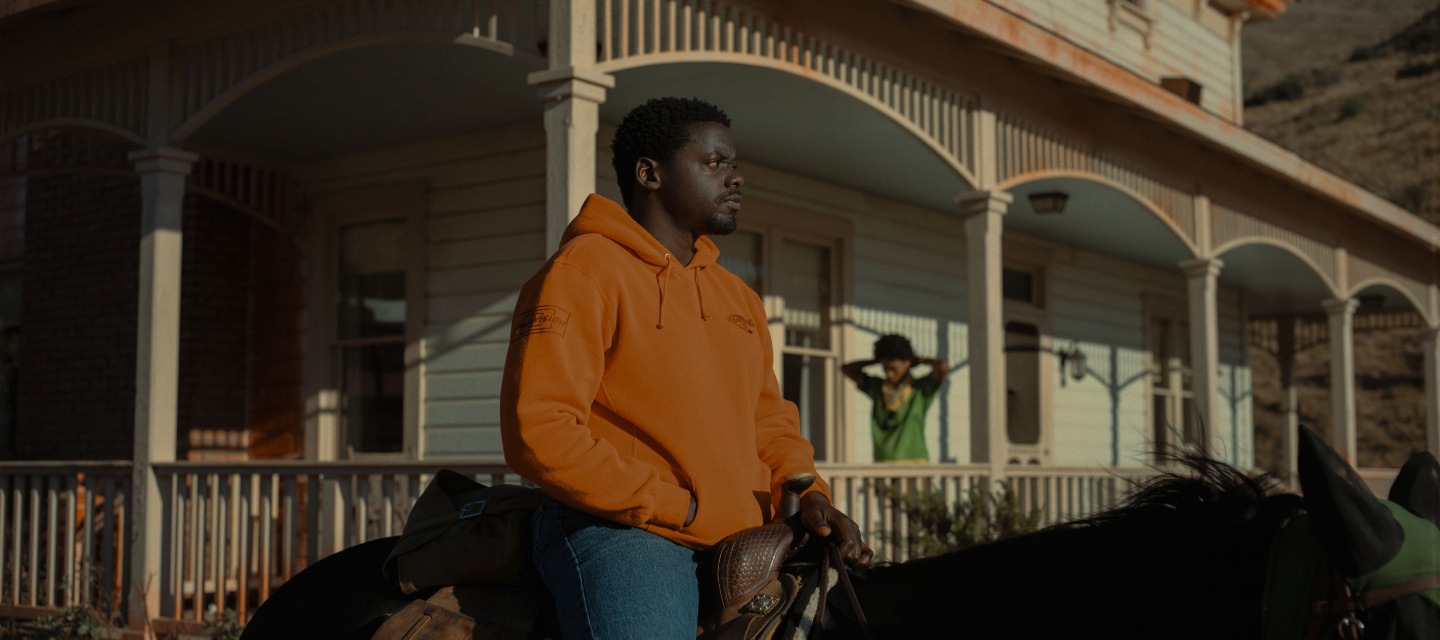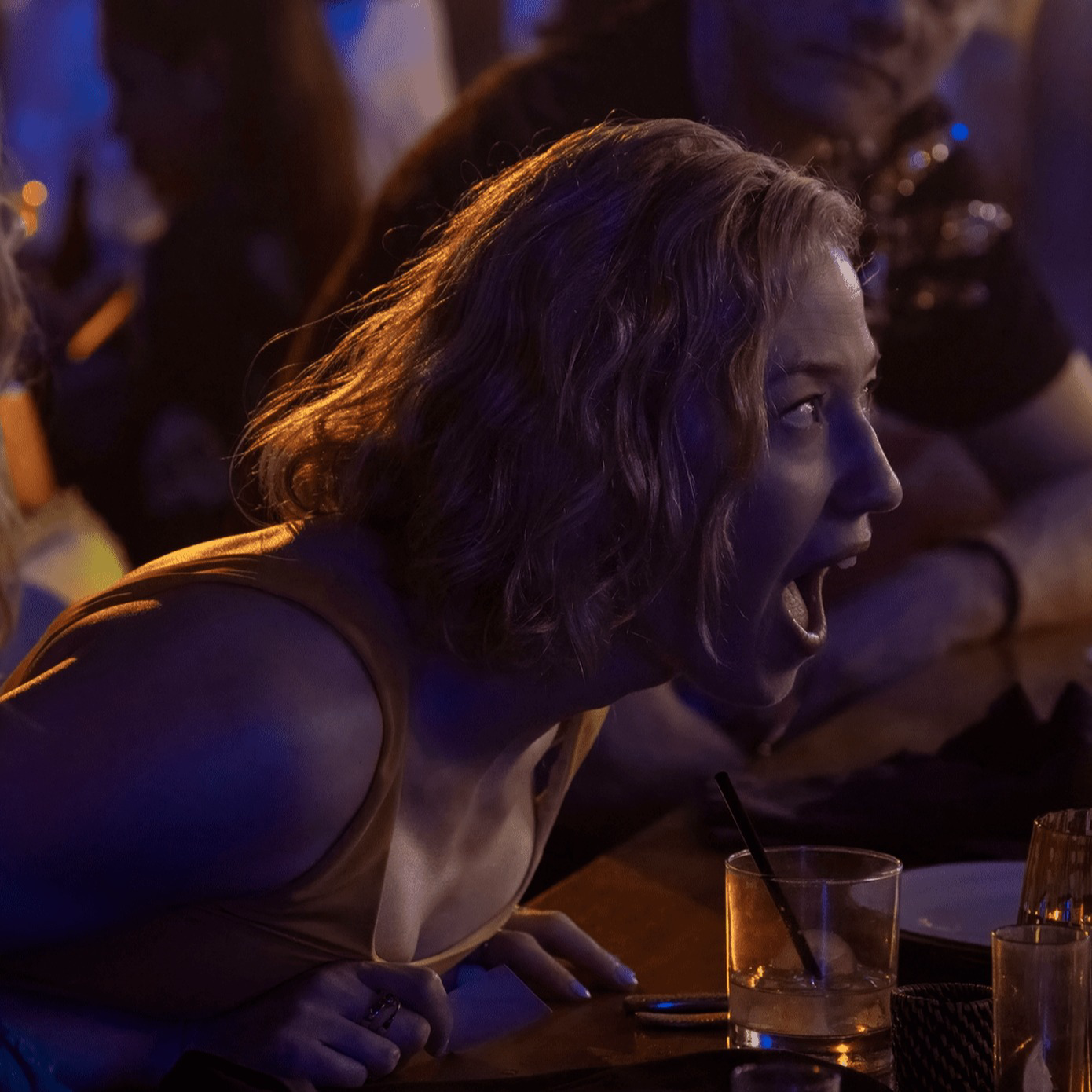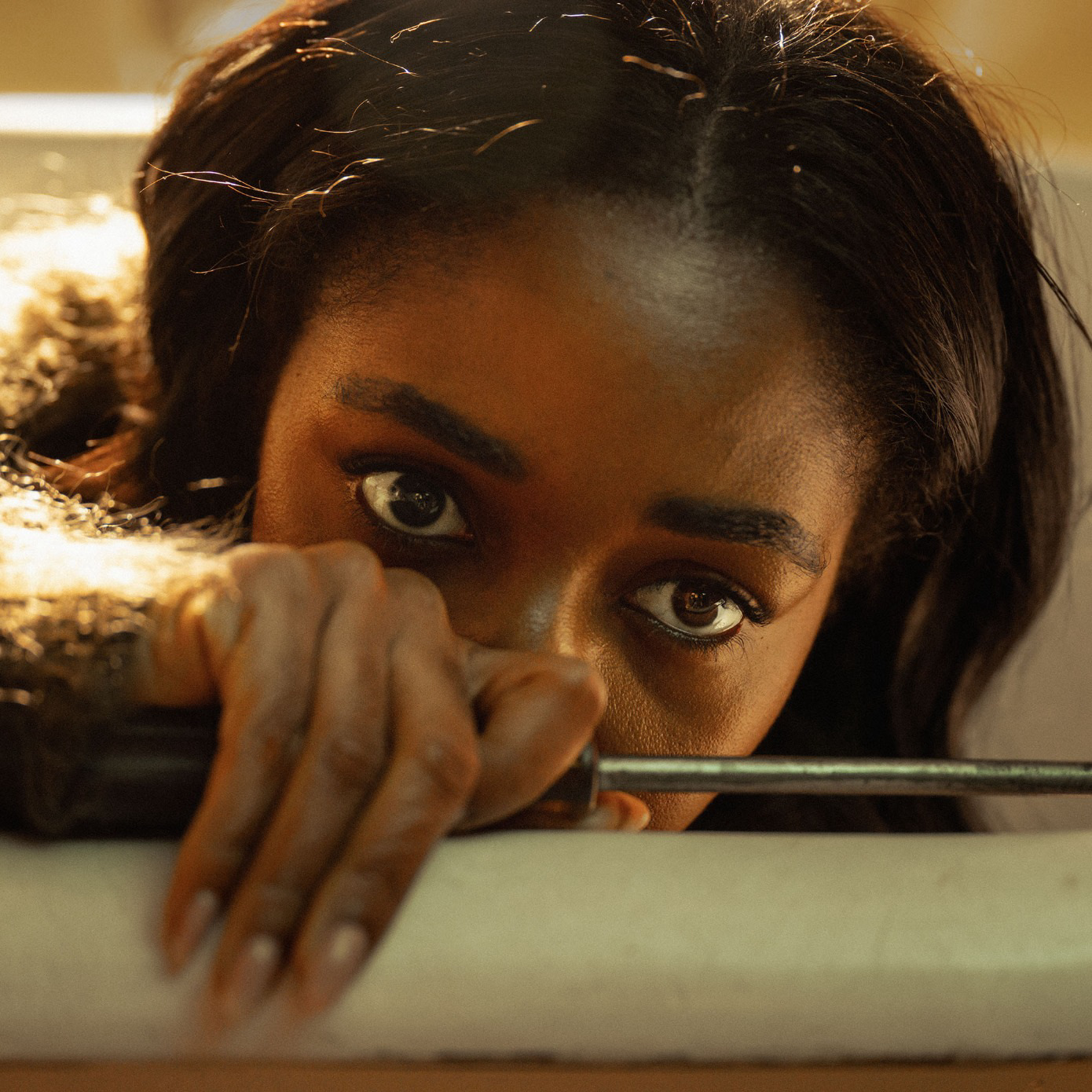It would be hard to overstate what an accomplishment—cinematic, artistic, commercial, social—Get Out was. A genuinely great movie that met its cultural moment at exactly the right time (2017), Get Out was playful, walking a thrilling line between horror and satire, and innovative, spawning a whole new micro-genre of inferior imitators, but it was also astoundingly tight: as Zadie Smith wrote in Harper’s, it’s a film “that contains its own commentary.” So deft was director Jordan Peele’s handling of his themes that any potential audience reaction seemed to have already been identified, anticipated and incorporated into the film itself. Maybe the best example was a joke that went around online during the 2017 Oscar season: if Get Out existed in the world of Get Out, all the white people would be talking about how much they loved Get Out.
Since then, Peele has gotten loose. Real loose. Rather than limiting himself in a bid to recreate his initial success, he’s been making weird, ambitious, expansive, gorgeous and somewhat sloppy genre pictures. Us (2019) was pure horror, and this year’s Nope, released July 22, is a classic Spielbergian monster flick. But Peele hasn’t forgotten that filmmaking is a conversation, or that the audience can talk back. Nope’s title, Peele said in an interview, was meant to acknowledge what viewers would be thinking—and, perhaps, shrieking.
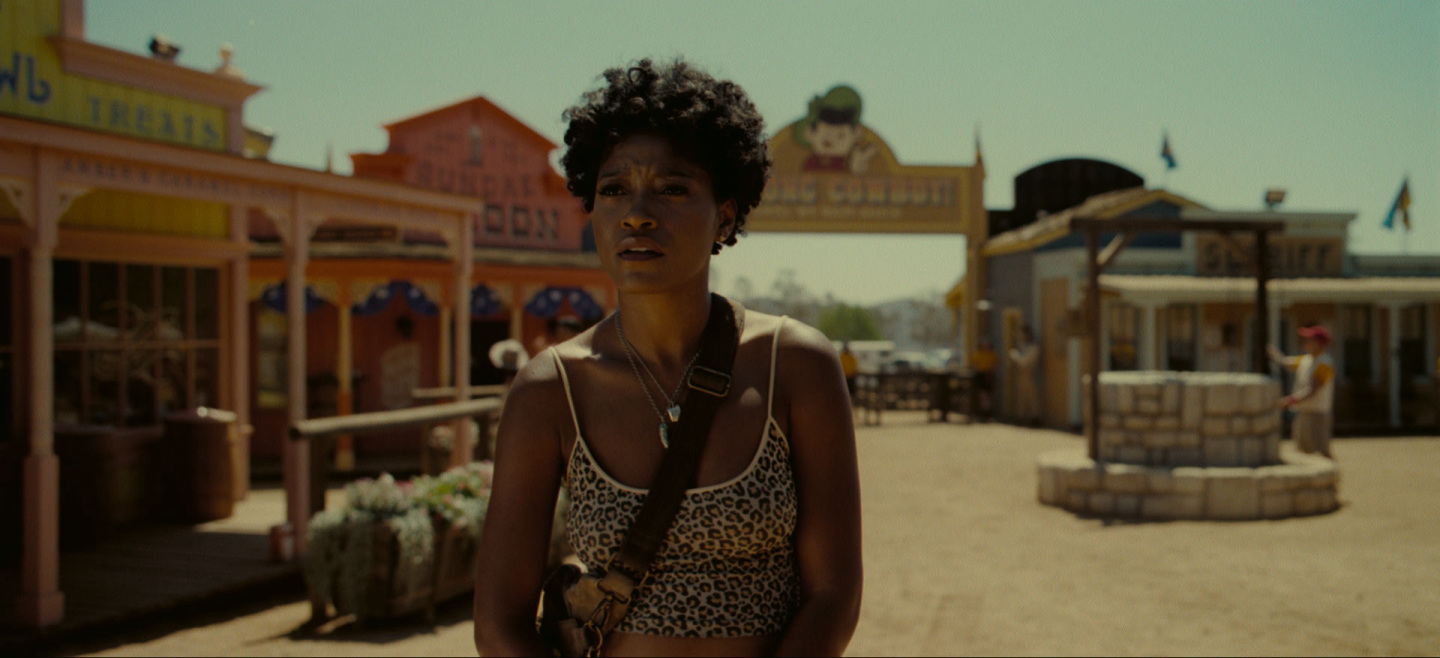
Nope follows two siblings, O.J. (Daniel Kaluuya) and Emerald Haywood (Keke Palmer), who take over their family’s Hollywood horse wrangling business after their father is killed by mysterious falling debris. Both performances are fantastic—Kaluuya is understated, a quiet, stoic presence who does most of his acting with his gaze, letting Palmer, vivacious, frenetic and completely mesmerizing, steal the leading role. The Haywood siblings are deeply entwined with filmmaking history—they’re descended from the unidentified Black jockey pictured in Eadweard Muybridge’s real-life film The Horse in Motion, an early example of a moving image. But their business is struggling, and O.J. has started selling off horses when some of them start mysteriously disappearing. The culprit, they slowly realize, might be a U.F.O. The answer to their financial problems? Capture it on camera—get “the Oprah shot,” as Emerald puts it—and profit.
There’s a lot going on in Nope. It’s got cowboys and aliens, spectacle and horror, Hollywood and its discontents. Many moments pay tribute to film history, from shots referencing Hitchcock to the pivotal use of an analog IMAX camera. Involving a rogue ape on a multicamera sitcom set, the backstory of a former child actor turned carnival showman (Steven Yeun) provides some of the most haunting and horrifying images in the movie. Visually, it’s an uncontested triumph, and it’s a pleasure to see Peele experimenting as an image-maker. But there’s a sluggishness to the writing that keeps Nope from feeling like a fully-fledged, mature work.
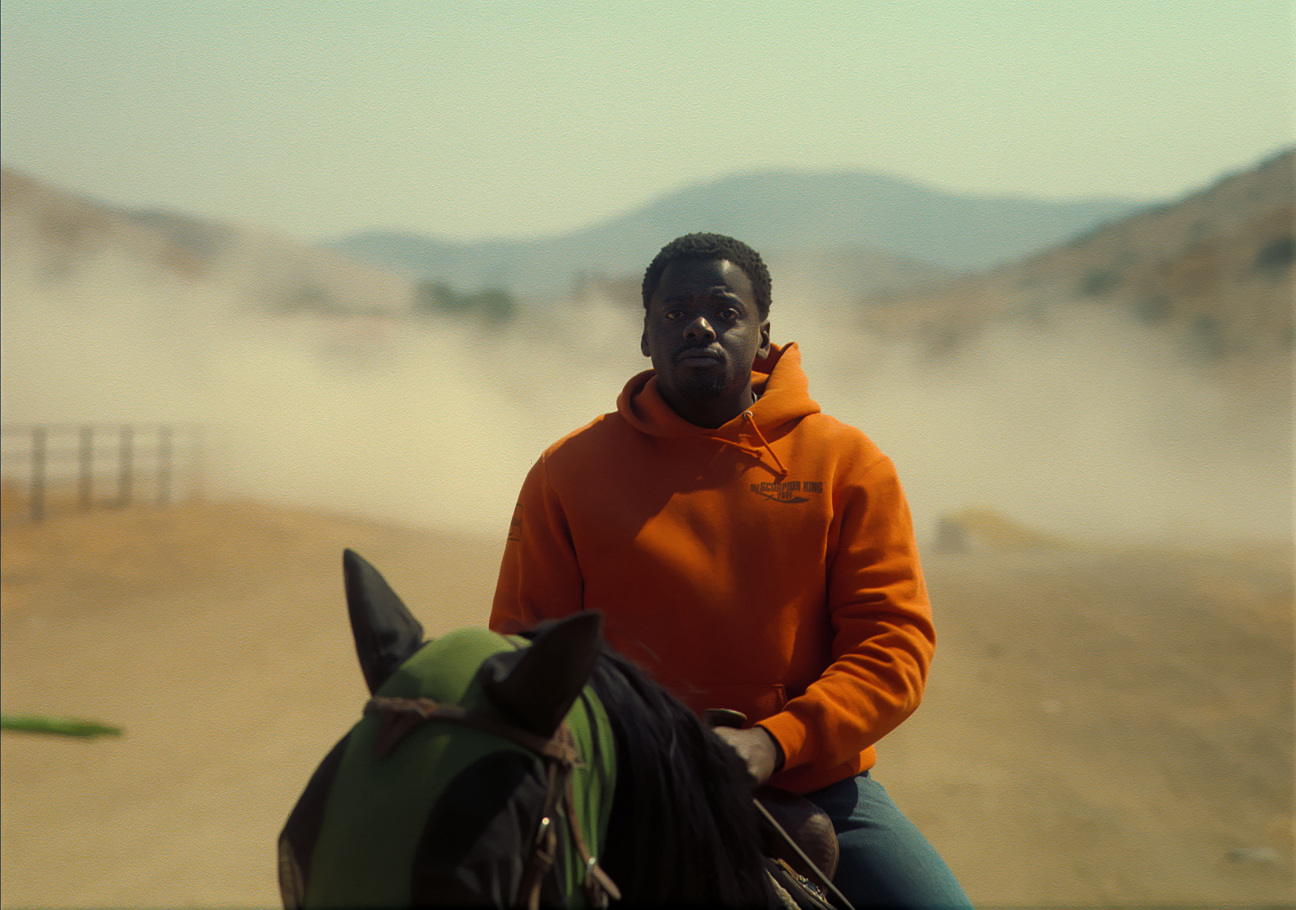
Fascinating side plots, especially Yeun’s, build up and then conclude cheaply; thematic connections are hinted at without quite adding up to something more. In addition to the film’s fixation on moviemaking as a site of both exploitation and possibility, there’s a recurrent interest in the fragile symbiosis between humans and animals. This interest, though, is stunted: Nope can’t quite bring itself to ask its most compelling questions. Still, on just his third feature film, Jordan Peele remains one of the most exciting contemporary directors. While waiting for his next truly great picture, I’m glad that he can make movies this original and imperfect.

